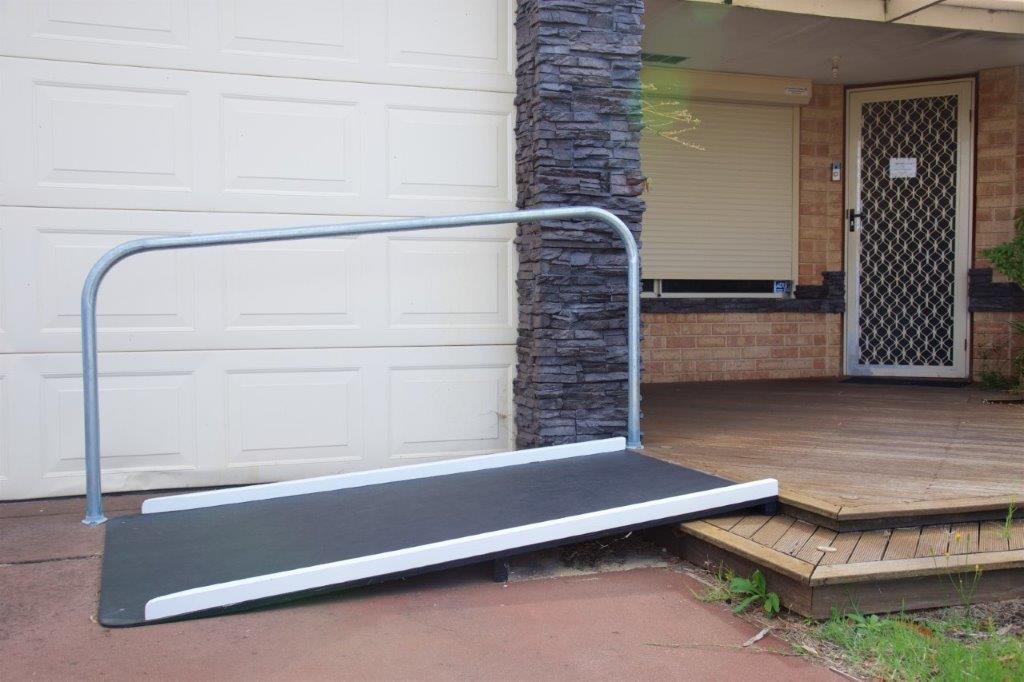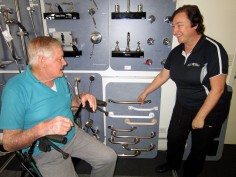Home modifications - getting it right!
11 April 2014
 A person’s home can have a significant impact on their ability to carry out daily tasks, their safety, their ability to get out into the community and their overall health and wellness. Modifications to a home can ensure the home environment is easy to access, supports you with your daily activities and is free of hazards. They can also make sure getting out into the backyard isn’t mission impossible, and having a shower isn’t a fearful experience.
A person’s home can have a significant impact on their ability to carry out daily tasks, their safety, their ability to get out into the community and their overall health and wellness. Modifications to a home can ensure the home environment is easy to access, supports you with your daily activities and is free of hazards. They can also make sure getting out into the backyard isn’t mission impossible, and having a shower isn’t a fearful experience.
If you are considering a home modification, it is important to get the right help and advice. Everyone has different needs and therefore any home modification needs to be individualised to your needs, circumstances and environment. Involving an Occupational Therapist and a trained trades person or registered builder ensures that all modifications are safe and are suitable for you!
The role of the Occupational Therapist
An Occupational Therapist is specialised in working with individuals to improve the overall accessibility of their home environment by identifying and reducing any barriers or hazards that impact on their ability to perform everyday activities such as showering, cooking, doing the laundry or getting out to do the shopping.
An Occupational Therapist will work with the person and their carer/family to identify what their needs are, taking into consideration a person’s home environment, medical condition, difficulties and abilities, mobility, and a person’s unique circumstances, personal goals and desires. The person and their carer/family are at the center of each step of the problem solving and recommendation process.
Occupational Therapists are skilled in identifying how you interact with your environment and what is creating difficulties

for you now or may in the future. Such as can you reach cupboards in the kitchen easily, is your house well lit? Are you able to get in and out of your shower safely? Is the hob difficult to step over? Is climbing stairs difficult, are there trip hazards or clutter that might cause you to fall? Can you easily get in and out of your house or to your washing line?
Role of builder and tradesman: building codes and standards
Qualified builders and tradesmen have an understanding of structural and technical matters related to home modifications, for example, which materials would be suitable for different types of ramps and how the construction design and materials of a wall may affect the placement and style of grab rails. Tradesmen are able to interpret and apply the relevant building codes and Australian standards. An Architect may also be required when considering major structural modifications.
The Building Code of Australia directs the modification process by detailing mandatory provisions for technical work- telling us legally what we can and cannot do regarding building new homes and modifying existing ones. The Australian standard 1428 design requirements for new design and additional modifications to existing public buildings. This standard is not mandatory for private dwellings but is used as a guide to ensure safe access and is commonly considered best practice by home modification service providers. Therapists are able to use the AS1428 as a guide when prescribing home modifications but are able to deviate from the standard if needed, to fit with the environment and meet a person’s functional needs.
In a nutshell, The perfect team to assess, design and complete home modifications in your home is the Occupational Therapist, a qualified trades person and you!
A well considered home modification, following a person-centred assessment, can increase someone’s independence and safety, so much so that they may not need support services and may delay or avoid the need for residential care or hospital stays! Stay tuned for future case studies, on how modifications have assisted people living in the community.
For more information about home modifications contact Indigo on 1300 885 886 or 08 9381 0600.

 Translate
Translate